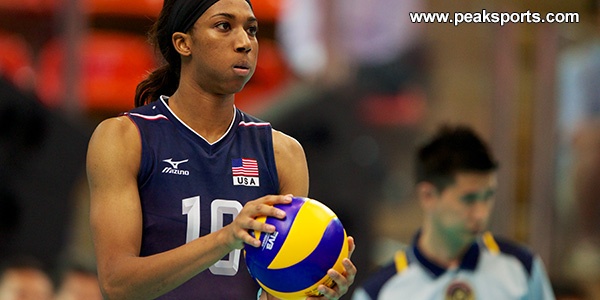Mental Toughness Lessons for Volleyball
Most people are familiar with the saying, “Sports are 90% mental and 10% physical.”
Well we aren’t out there playing chess, right?
Sports are 90% physical. However, that last 10%, the mental part is what can take your game to 100%.
While in high school, I went to a volleyball camp at Duke University. I was invited to the camp several summers in a row and one of my favorite parts was being able to talk with the players and ask them questions about the game.
During my junior year, I asked one of the outside players at the time what took her game to the next level. She said the usual… more reps, competitive experiences, having different coaches, etc.
She also commented, “If I had to choose one thing though, it’d be my mental game.”
At the time, I was unfamiliar with mental toughness. I had coaches that would say, “You have to be mentally tough,” but I didn’t understand all that it entailed or how to become mentally tough.
This outside player at Duke was a 6-rotation player, and she explained to me that understanding the mental game and training her mind influenced her ability to be a 6-rotation player.
Serve receive may be one of the most difficult tasks in volleyball. Many reasons might impact this struggle, such as the pace of the ball, the distance it travels, wanting to start the play with a good pass, a “3”, being pressured to get a first ball kill, not wanting to feel frustrated or embarrassed if you shank a ball, and anything similar.
This particular outside was an excellent attacker, but she struggled with passing, especially in serve receive.
She told me that she had mental coaching once she got to Duke, and through the mental training she learned ways to be successful in serve receive. She learned how to take her game to the next level.
After that conversation with a collegiate player in Cameron Indoor Stadium, I wanted to start learning more about the mental game as a player. I began to research “mental toughness” and read a book or two about the mental game.
From that, I learned a pre-match routine as well as a pre-serve and serve receive routine. Additionally, I began talking to myself in a more positive, confident way after mistakes and even in preparation for a match.
Those slight changes in my mindset influenced my ability to reach the next level of my game.
If you want to improve your mental skills as a volleyball player, work with a mental coach, read mental training books, listen to our podcasts on the mental game; tap into resources that help you gain an understanding and apply your knowledge.
When you become aware of your own mental game, you can more easily make improvements.
Train your mind like you train your body. And, how often do you train your body?
Related Sports Psychology Articles
- How to Prepare for Pressure in Volleyball
- How to Develop a Champion Mindset in Volleyball
- Fragile Confidence and Perfectionism in Volleyball
*Subscribe to The Sports Psychology Podcast on iTunes
*Subscribe to The Sports Psychology Podcast on Spotify
Download a free sports psychology report to improve your mental game!
Learn more about our one-on-one mental game coaching.
The Mental Edge For Volleyball Players
Do you over think your performance in games? Do you lose confidence easily after a couple of blow plays? Do you become so frustrated with your game that you can’t focus on the next play?
If you answered yes to any of these questions, it’s a good bet that your mental game might prevent you from consistent performance in games…
“The Mental Edge For Volleyball” program is ideal for any club, academy, college, or professional volleyball players. In addition, volleyball coaches, instructors, and parents would also be wise to teach the strategies we provide in “The Mental Edge For Volleyball” to their players.


